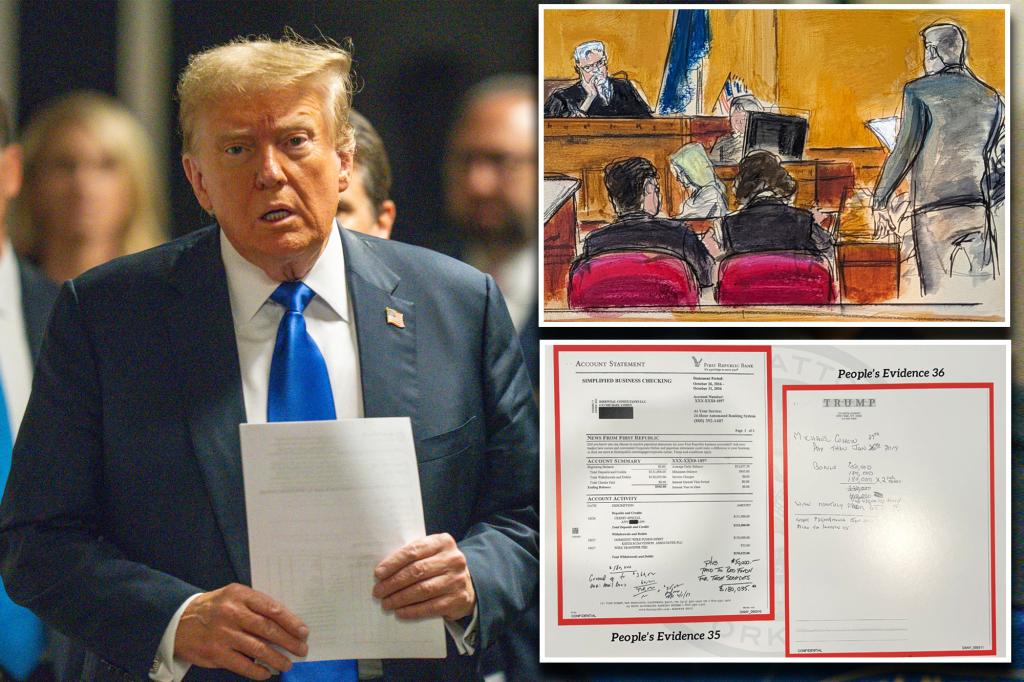The Manhattan jury that found Donald Trump guilty on charges of fudging business records needed to unanimously agree that his actions were with the intent to cover up another crime. This crime, as alleged by prosecutors, involved entering into a conspiracy to illegally influence the 2016 election by making hush-money payments to women who claimed to have had affairs with Trump. The jury did not need to agree unanimously on what the unlawful means were, but were presented with three options by the judge, including breaching federal campaign-finance laws, violating tax law, or falsifying business records as part of the conspiracy.
The jury ultimately found Trump guilty on all 34 counts of falsifying business records, but it is unclear what specific unlawful means they believed underpinned the conspiracy. The charges against Trump focused on his involvement in making hush-money payments to women in order to prevent a sex scandal from impacting his chances during the 2016 election. The judge instructed jurors to consider whether the payments exceeded the legal campaign finance contributions limit, violated tax law, or involved the falsification of business records in relation to the conspiracy.
The verdict sheet filled out by the jurors shows a check mark next to each of the counts of falsifying business records against Trump. However, it does not provide detailed information on which unlawful means the jurors believed were involved in the conspiracy. The case against Trump hinged on whether his actions were taken with the intent to cover up illegal activities related to the 2016 election. The prosecution argued that the conspiracy to influence the election through hush-money payments was a violation of New York state law.
The jury’s decision to find Trump guilty on all counts of falsifying business records indicates that they believed there was sufficient evidence to show that he had engaged in illegal activities in relation to the hush-money payments. The guilty verdict highlights the legal consequences of attempting to cover up potentially damaging information during an election campaign. Trump’s conviction demonstrates that individuals, regardless of their position or status, are subject to the same legal standards as any other citizen when it comes to potential criminal activity.
The case against Trump raises questions about the use of hush-money payments to influence political outcomes and the legality of such actions. The verdict serves as a reminder of the importance of transparency and accountability in political campaigns, and the potential legal consequences of attempting to conceal information that could impact an election. The guilty verdict against Trump sends a message that public figures are not above the law and will be held accountable for any criminal activities they engage in, even if it involves illegal actions related to campaigns and elections.













